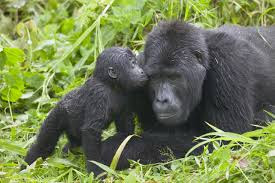The political process underpinning environmental peacebuilding is a fascinating one (read my earlier post for more on EPB). At its core it attempts to turn on its head the accepted view that environmental stresses (diminishing arable farmland, reducing freshwater etc) will lead inexorably to forced migration, poverty, instability and, ultimately, violent conflict and resource wars (mainly, of course, in the developing world). This view has seeped into the international security debate at the highest levels – in 2007 climate change was discussed within this narrative at the UN Security Council, and has since developed into a dangerously militarised ‘environmental security’ discourse.
However, this view fails to demonstrate how environmental degradation and rivalry over shared natural resources might actually lead to cooperation over its conservation, by mitigating pollution or stresses for the states affected. The cooperation built from this can then be utilised as an entry point into peace negotiations between conflicting states as habits of collaboration, increase in trust, and decrease in mutual suspicion spill over into greater regional unity in wider political arenas outside of conservation.
For instance: the countries involved in my case study are Uganda, Democratic Republic of Congo (DRC), and Rwanda; three states that have, largely as a consequence of British and Belgian colonial-era policies, been kicking lumps out of each other pretty much since independence in the mid-20th Century. The Greater Virunga Transboundary Collaboration (GVTC) is a transboundary conservation programme, created in 2006/7: a single, huge, unified park that crosses the borders of the three countries, managed by a sole authority supported and funded by the governments of the three partner states. And the conservation goal at the heart of the GVTC? Saving and supporting the last remaining community of mountain gorillas in the world.
That environmental peacebuilding has saved the mountain gorilla from extinction, and seen its numbers increase exponentially, is clear (from near extinction in 1980s to 1000 in the 2019 census).
What is less clear, however, is whether the political process at the heart of environmental peacebuilding in the region has led to greater cooperation, increased levels of trust, and decreasing levels of suspicion in other regional political arenas. Events of the last decade suggest not.
Why might this be the case? Why hasn’t the successful cooperation and collaboration between those three nation states over a localised conservation programme not translated to further regional political cooperation in other arenas?
Critics of environmental peacebuilding point to the obligation that successful transboundary conservation in a conflict area necessarily depoliticises an issue, rendering stresses and solutions purely at technical levels – in this case, anti-poaching measures, improved gorilla monitoring, greater communication between rangers, best-practice sharing – and removes the political issues at the heart of the conflict. Indeed, this reflects the view that cooperation over environmental stresses obliges states to introduce engineers and scientists to address conservation issues, professions bound by international cooperation, that often exist outside of and unaffected by political conflicts of their governments.
(It also lends weight to my increasingly-held belief that people all over the world just want to get on with each other and live quiet, happy lives, and it’s politicians that fuck everything up!)
This ‘depoliticisation’ of a conflict, the introduction of technical cooperation at the expense of the political, might well see success in its conservation aims. But by failing to address the source of the political conflict, any high-level collaboration will likely flounder outside of those strict technical boundaries (see the wonderful Good Water Neighbours project, a freshwater conservation programme in the river Jordan basement between Israeli, Palestinian and Jordanian communities).
Using this case study and the environmental peacebuilding political process – catalysing transboundary conservation as an entry point to peace (in its broadest sense) – my research focusses on the exact moment that low-level informal cooperation created and maintained by the IGCP led to high-level formal political cooperation between the three partner-state governments in such a region of violence and conflict:
- How do different organisations and institutions that have different objectives and policies cooperate over diminishing shared ecological resources?
- How does political cooperation emerge from a common technical behaviour and language that depoliticises a region?
- How do the ahistorical effects of technical cooperation around conservation of a shared ecological resource escalate to political cooperation?
Basically, environmental peacebuilding in the Virunga Massif has led to successful localised transboundary cooperation and conservation efforts in a region torn by decades of conflict. But has that cooperation led to greater political cooperation between the three states, and led further to greater levels of peace in the region? If not, why? And what lessons can we learn from this case study that can be used for further international peacebuilding and conservation efforts.
And, crucially, can environmental peacebuilding really help prevent future dystopian resource wars as, and here’s the terrifying rub, climate change begins to destroy our system-supporting resources?
Here's where I come in...





No comments:
Post a Comment